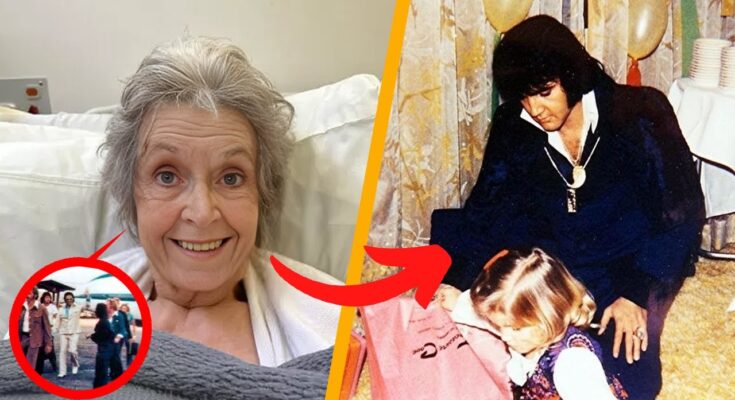Elvis Presley, the King of Rock and Roll, has long captivated audiences with his music, charisma, and larger-than-life persona. However, the final years of his life were shrouded in mystery, leaving fans to wonder about the truth behind his struggles. Recently, Leticia Henley Kirk, Elvis’s private nurse, shared her firsthand account of the challenges he faced, offering a rare glimpse into the man behind the legend.
A Unique Bond with the King
Leticia’s journey with Elvis began in 1968 when she worked as a nurse at a Memphis clinic. Their first encounter was purely professional—she treated him for saddle sores. However, their connection quickly grew beyond a patient-caregiver relationship. Elvis was drawn to her compassionate nature and her “country ways,” as he called them. By 1972, as his health started to decline, he personally hired Leticia as his private nurse, marking the start of a profound chapter in both of their lives.
The Hidden Health Struggles
Despite his electrifying stage presence, Elvis was battling serious health issues behind closed doors. He suffered from cardiovascular problems and respiratory conditions, which significantly impacted his physical and mental well-being. The relentless pressures of fame, coupled with a demanding lifestyle, only made matters worse. Over time, his reliance on prescription medications spiraled into a full-blown addiction. What began as a means to manage pain and anxiety turned into a dangerous dependency on sedatives and stimulants. Leticia, as his nurse, witnessed firsthand the devastating toll it took on his body and mind.
Loneliness Behind the Fame
While fans saw a superstar adored by millions, Elvis often felt deeply isolated. Despite maintaining a close bond with his ex-wife, Priscilla Presley, and cherishing his relationship with their daughter, Lisa Marie, he struggled to find true companionship. His romance with Linda Thompson brought him moments of solace, but it ultimately ended due to the emotional strain of his self-destructive behavior. This loss only deepened his loneliness and contributed to his decline.
The Final Performances
As Elvis’s health deteriorated, the energy that once defined his performances began to fade. Fans noticed his erratic behavior and declining stamina on stage. Though he remained dedicated to his audience, the physical and emotional burdens made it increasingly difficult to maintain the same level of showmanship. Still, he continued performing out of a deep sense of duty to his fans, even as his condition worsened.
The Tragic End
On August 16, 1977, the world was stunned by the news of Elvis Presley’s passing. After a restless night filled with medication use, he was found unconscious in the bathroom of his Graceland home. His death was attributed to advanced cardiovascular disease exacerbated by prescription drug abuse. It was a heartbreaking end to the life of a man who had given so much to the world.
A Nurse’s Perspective on the Man Behind the Legend
In her 2015 memoir, Taking Care of Elvis, Leticia Henley Kirk offers an intimate look at her time with the King. Through her eyes, we see a man who, despite his fame, was deeply kind, spiritual, and connected to his family. Yet, he was also burdened by the immense pressures of celebrity life. Her reflections serve as a powerful reminder of the importance of mental health awareness and the unseen struggles that many public figures face. While Elvis Presley’s legacy continues to inspire generations, his life story remains a poignant lesson on the complexities of success, loneliness, and the human need for compassion and connection. Leticia’s revelations invite fans to see beyond the glitz and glamour—to remember Elvis not just as an icon, but as a man who, like many, battled personal demons. As we celebrate his music and enduring legacy, we are also reminded of the importance of understanding, support, and the impact of fame on mental well-being.



